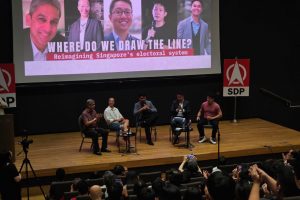Dear formerly politically apathetic millennials, when was your political awakening? What turned you into the passionate, vocal, and concerned citizen you are today? Do you remember the precise moment you decided to commit yourself to be politically aware instead?
For me, this moment happened four years ago when I reported on the General Elections. Specifically, it was the night of the election results, when I spent seven hours experiencing a rollercoaster of emotion at the supposed legendary hawker centre in Hougang where Workers’ Party supporters were known to gather.
I don’t remember what time it was, what I was wearing, or who I was speaking to. I don’t remember the specific percentage loss. I don’t even remember the members from WP who were in each team.
But I distinctly recall the plunging mood after WP lost in East Coast GRC. The collective slump of shoulders from the raucous crowd that had erupted into occasional cheer just minutes ago. The dejected, suppressed, sighs as many supporters struggled to maintain their composure amongst strangers. The acidic taste of disappointment and defeat as I willed myself not to behave unprofessionally by releasing tears of anguish mid-assignment.
The overwhelming urge to retort, “Fuck it, why did I even bother having faith that something would change?”
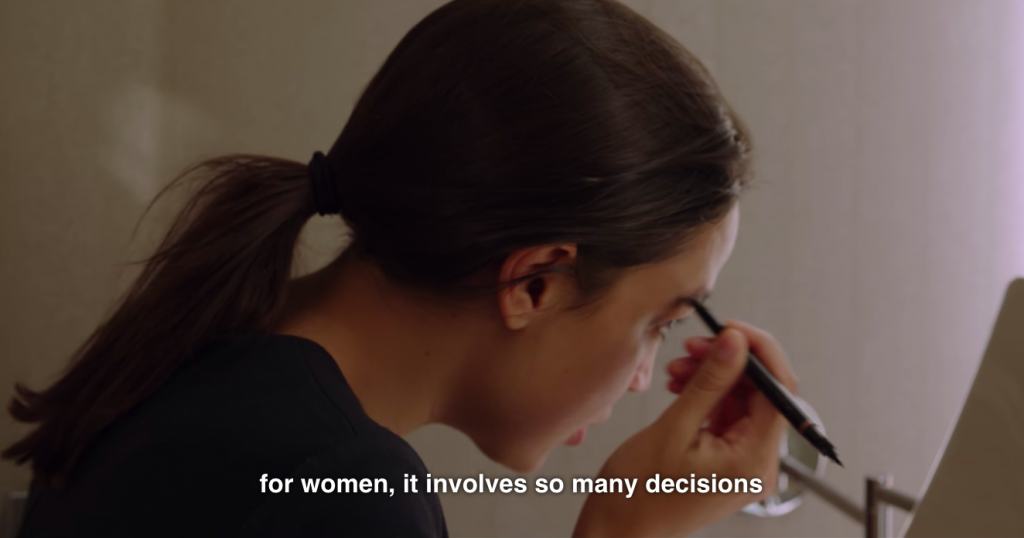
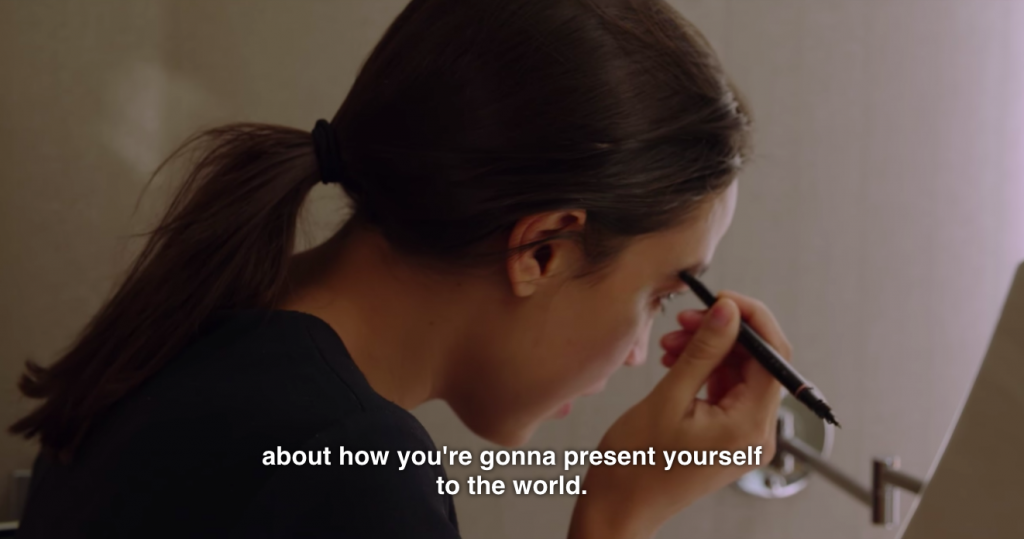
However, unlike any other instance when I found myself caring too much, I didn’t brush aside those feelings and move on with life. Instead, I carried the disenchantment borne from unmet idealism with me. I internalised it; I let it change me.
But until I recently watched the Netflix documentary Knock Down the House, featuring US Congresswoman Alexandria Ocasio-Cortez (AOC)—and until AOC said, “I get scared of the cynicism that could result from people really believing in something and it not working out”—I had forgotten all about the night I decided to care about the future of my country.
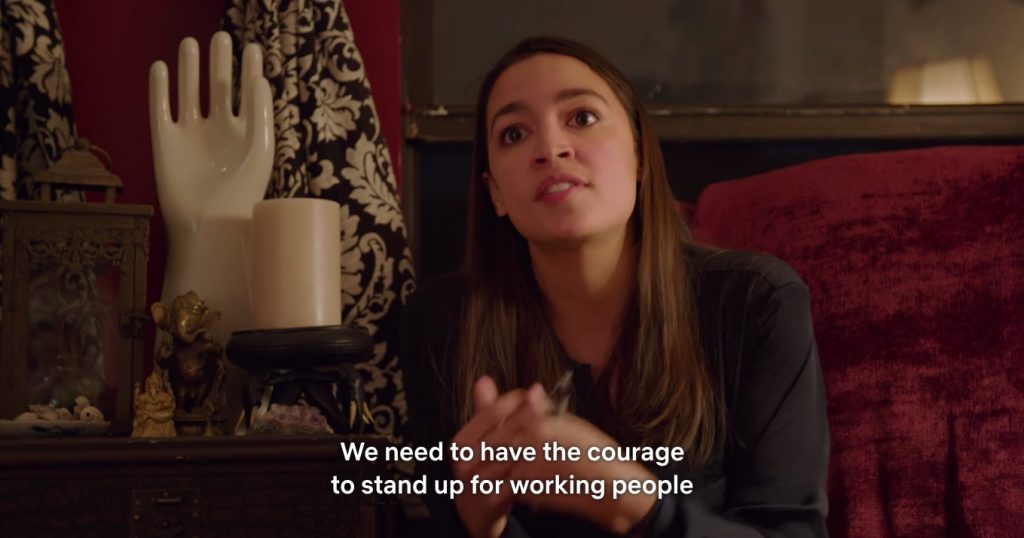
Rather, the documentary is the stuff of Adam Khoo’s wet dreams—which is not necessarily a bad thing. It features four women in total, but AOC’s storyline is the most memorable: a David versus Goliath retelling of her grassroots campaign that propelled her from bartender to Congresswoman, as she contested against an incumbent who’d served for 20 years.
While a Latina woman making it into US Congress might not seem remotely related to Singaporean politics, it’s the palpable sense of hope and inspiration present in AOC’s narrative that we seem to lack in our own political discourse.
In contrast to most of our politicians’ dry political language (and even more banal personalities), she uses rousing and compelling rhetoric to frame her successful campaign. The entire 1.5 hours are littered with pure motivational mantras about being the change you want to see and enough emotionally intense scenes to make me want to run for a seat in our Parliament.
In one scene, AOC stands in an elevator looking exhausted after bartending. She states, “If I was a normal, rational person, I would have dropped out of this race a long time ago.”
In another, when a supporter voices his concerns that people would be trading someone with a lot more power for her, AOC reasons, “We need to look at what that power does now. When it matters, he doesn’t stand up for us. When it matters, he doesn’t advocate for our interests. We have to have the courage to say, ‘We can do better.’”
This power, she says, is “an illusion”—no one should let anyone else tell them that the race isn’t “winnable”.
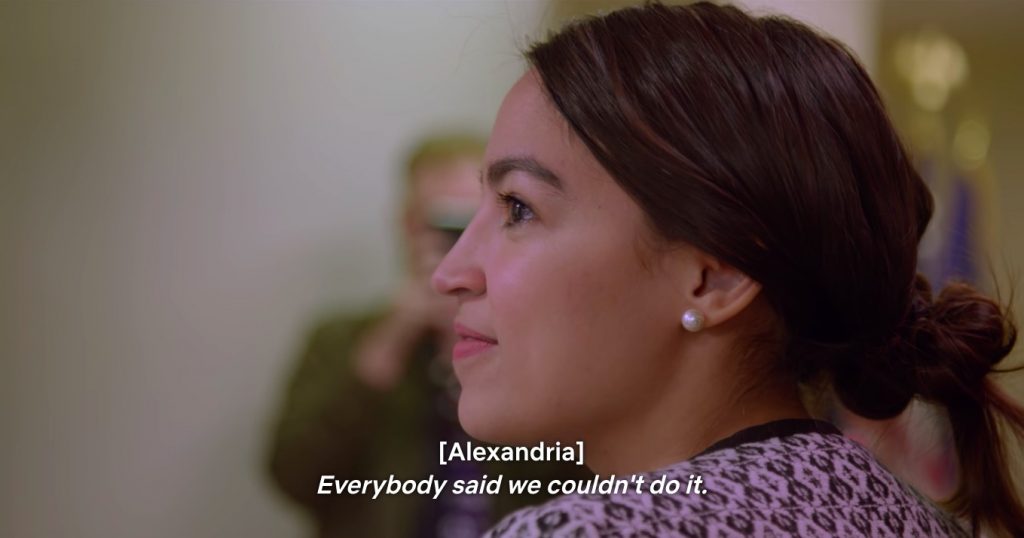
When it comes to politicians-in-the-making, we tend to pick stability over personality. Larger-than-life politicians don’t radiate productivity or practicality; they fight for radical change, and not incremental improvements. They may appear to be style over substance; good orators are typically assumed to be mutually exclusive from serious policymakers.
These are valid concerns. But we see through the bullshit and the false dichotomy that also spills over to our political discourse, where not supporting the government is automatically assumed to be pro-opposition, presenting problems for those who may genuinely care enough to speak up or create change.
We may pride ourselves in being pragmatic, but the same quality also does us in. We convince ourselves it is far easier to give up and embrace status quo; to conform to reality than to fight for a better alternative.
The challenge is to harness the inherent hope that’s present in inspiration and translate it into action, long after a single inspiring election campaign.
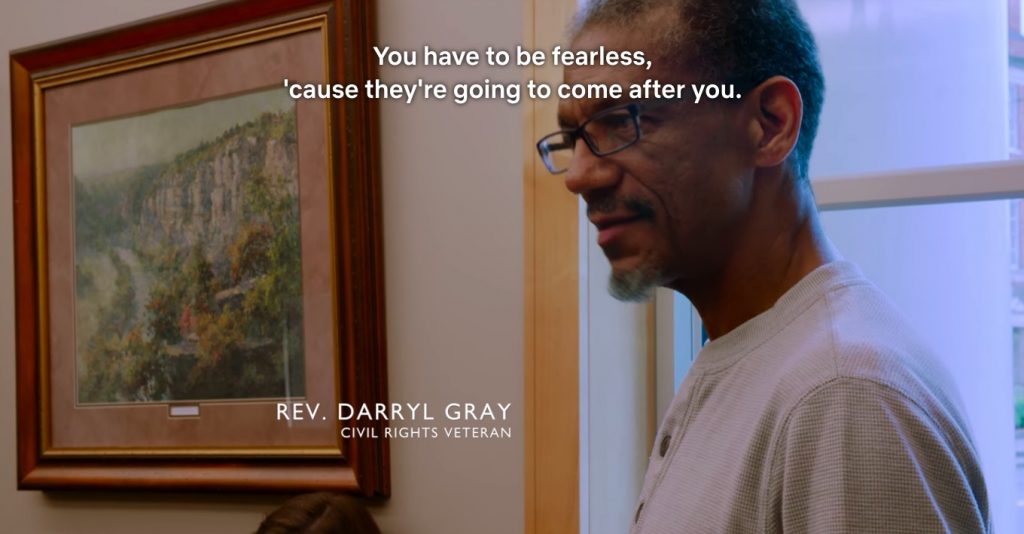
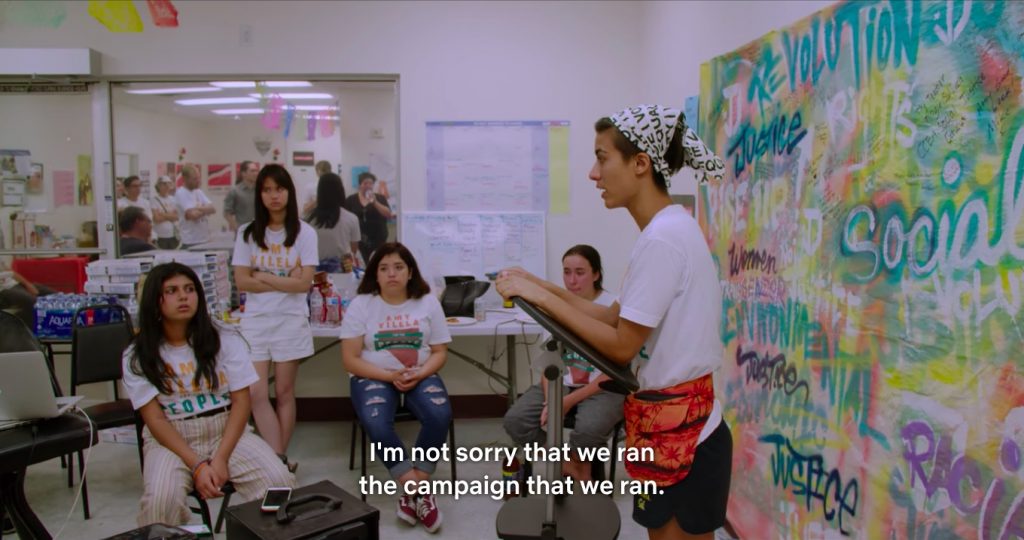
Then she waves her arms up and down to “take up space” and calm her harried self; to remind herself she deserves to be on the same stage as an experienced politician.
There are equal parts courage and vulnerability in that single moment to make me tear up. In politics, it seems, it is common to believe in something so desperately only to risk being heartbroken time and again. And this constant letdown can be exceptionally paralysing.
Despite this, AOC tries. She tries against all odds. She rises above the burden of inexperience instead of letting it consume her.
“Why? Because nobody else would. So literally anybody else could, right? Because the alternative is no one,” she says.
“For one of us to make it through, 100 of us have to try.”
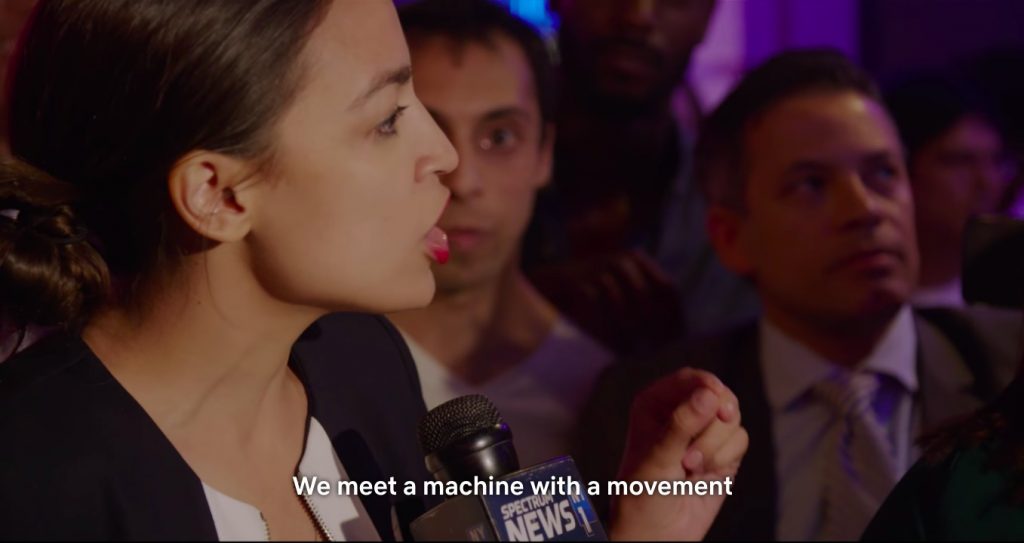
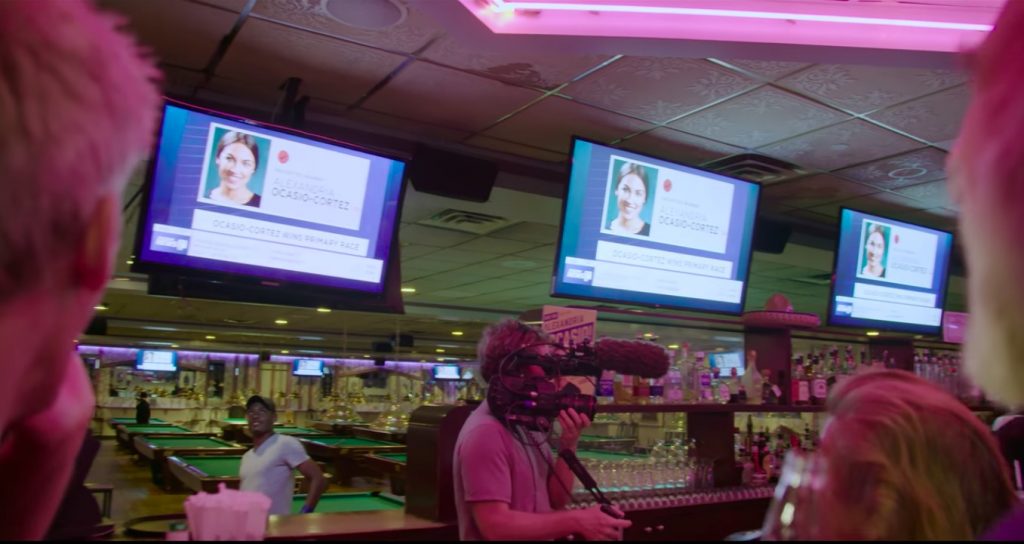
Of course, I don’t think we should have a broken system before we sit up and become politically aware; this shouldn’t a zero-sum game. But in the face of a dire lack of political education in Singapore, the importance of mere inspiration in politics cannot be overstated.
For a country that’s regularly criticised for being politically apathetic, this inspiration could be the very impetus for citizens to get up from their armchairs and fight for something greater than themselves. Whether it’s politicians who turn their own ‘rags-to-riches’ story into the reason they become galvanised to give back to society, or potent rhetoric that consistently reminds citizens of the power their individual votes have, a narrative built around empowering the ordinary citizen will reframe politics for the people, instead of benefiting those already in power.
When I think about the crowd of WP supporters on results night four years ago, whose faces fell as they were blindsided by the PAP’s sweeping win, I remember praying so hard they would not be overcome by cynicism.
In the four years since, and especially after watching Knock Down the House and observing AOC’s win in the US, I’ve realised there is nothing truer than this: it is a privilege to care so deeply for so much.
Let’s just work on making it count.


